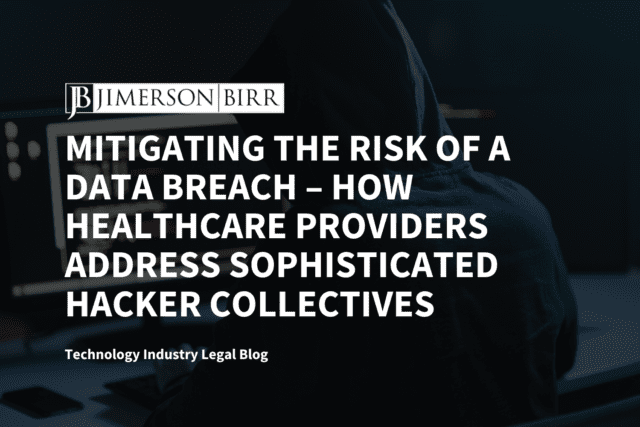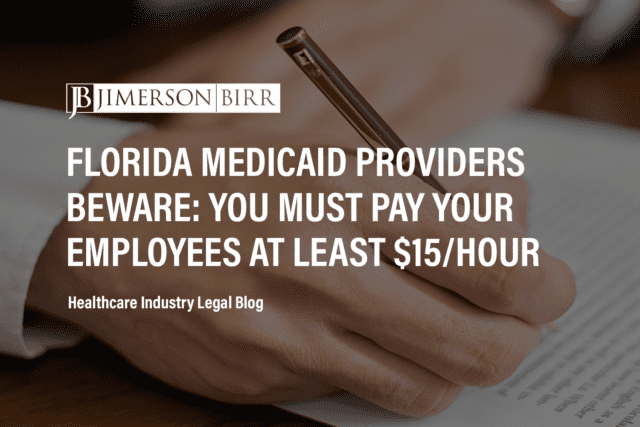How does healthcare fraud and abuse compliance affect companies?
Healthcare fraud and abuse compliance significantly impacts companies operating within the healthcare industry. Compliance with regulations and laws aimed at preventing fraud and abuse is essential for maintaining the integrity of healthcare systems, protecting patients, and ensuring fair competition among providers. Non-compliance can result in severe consequences, including hefty fines, legal penalties, reputational damage, and even exclusion from government healthcare programs.
Moreover, compliance efforts require significant financial and human resources. Companies must invest in compliance programs, staff training, and technology solutions to monitor and detect potential instances of fraud and abuse effectively. This investment is crucial for mitigating risks and demonstrating a commitment to ethical business practices.
Reputational damage is another significant consequence of non-compliance. In the healthcare industry, trust is paramount, and companies implicated in fraud or abuse scandals risk losing the trust of patients, partners, investors, and the public. Rebuilding trust and repairing reputational damage can be a lengthy and costly process, affecting the company’s bottom line and long-term viability. Need help regarding healthcare, including healthcare fraud and abuse compliance? Schedule your consultation today with a top healthcare attorney.
In Florida, which laws and regulations apply to healthcare fraud and abuse compliance?
In Florida, healthcare fraud and abuse compliance is governed by a combination of federal and state laws and regulations. Some of the key laws and regulations applicable to healthcare fraud and abuse compliance in Florida include: · Anti-Kickback Statute (AKS): The federal AKS prohibits offering, paying, soliciting, or receiving remuneration in exchange for referrals or recommendations of healthcare services reimbursed by federal healthcare programs. Violations of the AKS can result in both civil and criminal penalties. Florida’s laws align with federal AKS regulations. Florida has a similar anti-kickback statute found here. · Stark Law: The federal Stark Law prohibits physicians from referring Medicare patients for certain designated health services to entities with which they have a financial relationship, unless an exception applies. Florida healthcare providers must comply with Stark Law regulations to avoid penalties for improper referrals. Florida has a similar law prohibiting self-referrals found here. · False Claims Act: The federal False Claims Act prohibits knowingly submitting false or fraudulent claims for payment to the government, including Medicare and Medicaid. Florida also has its own False Claims Act, which allows the state to recover damages for fraudulent claims made to state government programs. Florida has its own False Claims Act, Florida Statutes §§ 68.081 – 68.092, found here. · Florida Patient Brokering Act: This state law prohibits healthcare providers from offering or receiving kickbacks, bribes, or rebates in exchange for patient referrals. It applies to various healthcare services, including mental health, substance abuse treatment, and clinical laboratory services.
What are common issues regarding healthcare fraud and abuse compliance that lead to litigation?
Several common issues related to healthcare fraud and abuse compliance can lead to litigation. These issues often involve allegations of improper billing practices, kickbacks, and violations of healthcare regulations. Some of the most prevalent issues include:
· Billing Fraud: Billing fraud occurs when healthcare providers submit false or inflated claims to government healthcare programs such as Medicare or Medicaid. This can include billing for services that were not provided, upcoding (billing for a more expensive service than was actually performed), unbundling (billing separately for services that should be billed together), and billing for medically unnecessary services.
· Kickbacks and Stark Law Violations: Kickbacks involve the exchange of remuneration in return for referrals for healthcare services reimbursed by federal healthcare programs. Violations of the federal Anti-Kickback Statute (AKS) and Stark Law, as well as state laws prohibiting patient brokering, can lead to allegations of illegal financial arrangements between healthcare providers, suppliers, and entities referring patients.
· False Claims Act Allegations: The False Claims Act (FCA) prohibits knowingly submitting false or fraudulent claims for payment to the government. Allegations of FCA violations often arise from whistleblower complaints or government investigations into alleged fraudulent billing practices, kickbacks, or other healthcare fraud schemes.
· Stark Law Violations: The Stark Law prohibits physicians from referring patients for certain designated health services to entities with which they have a financial relationship unless an exception applies. Violations of the Stark Law can result in allegations of improper self-referral arrangements and kickback schemes.
· HIPAA Violations: Healthcare providers can face litigation for violations of the Health Insurance Portability and Accountability Act (HIPAA), particularly breaches of patient privacy and security requirements. Failure to safeguard protected health information (PHI) can lead to lawsuits, regulatory fines, and reputational damage.
We are value-based attorneys at Jimerson Birr, which means we look at each action with our clients from the point of view of costs and benefits while reducing liability. Then, based on our client’s objectives, we chart a path to seek appropriate remedies. To determine whether your unique situation may necessitate litigation, please contact our office to set up your initial consultation.
What steps should businesses take to minimize the risk of litigation over healthcare fraud and abuse compliance?
To minimize the risk of litigation over healthcare fraud and abuse compliance, businesses operating in the healthcare industry should take proactive measures to establish and maintain robust compliance programs. Here are several steps they can take:
· Implement Comprehensive Compliance Policies: Develop and implement comprehensive compliance policies and procedures that address applicable federal and state laws and regulations, including the False Claims Act, Anti-Kickback Statute, Stark Law, HIPAA, and state-specific regulations. Ensure that employees are trained on these policies and understand their responsibilities for compliance.
· Conduct Regular Compliance Training: Provide ongoing compliance training to employees at all levels of the organization, including executives, managers, healthcare providers, and administrative staff. Training should cover relevant laws and regulations, potential compliance risks, reporting mechanisms for suspected violations, and the importance of ethical conduct.
· Establish Effective Monitoring and Auditing Processes: Implement regular monitoring and auditing processes to assess compliance with healthcare laws and regulations, identify potential areas of risk or non-compliance, and address any issues promptly. Utilize data analytics and technology solutions to detect patterns of potential fraud or abuse in billing practices and financial relationships.
· Maintain Strong Internal Controls: Establish strong internal controls and procedures for billing, coding, documentation, and financial relationships with healthcare providers, suppliers, and referral sources. Implement safeguards to prevent fraudulent activities, such as requiring pre-authorization for certain services, conducting periodic reviews of billing documentation, and verifying the legitimacy of financial arrangements.
· Conduct Due Diligence on Business Partners: Before entering into contracts or partnerships with healthcare providers, suppliers, or other entities, conduct thorough due diligence to assess their compliance with healthcare laws and regulations. Evaluate their reputation, financial stability, and compliance history, and include contractual provisions requiring compliance with applicable laws and regulations.
· Respond Promptly to Compliance Concerns: Establish a process for employees to report compliance concerns or suspected violations anonymously and without fear of retaliation. Investigate reported concerns promptly, take appropriate corrective action, and implement measures to prevent recurrence. Encourage a culture of transparency, integrity, and accountability throughout the organization.
· Engage Legal and Compliance Experts: Seek guidance from legal and compliance experts with expertise in healthcare laws and regulations. Regularly consult with legal counsel to stay informed about changes to healthcare laws and regulations, assess compliance risks, and address any legal concerns proactively.
Frequently Asked Questions
What should I do if I suspect healthcare fraud or abuse?
If you suspect healthcare fraud or abuse, you should report your concerns to the appropriate authorities, such as the Office of Inspector General (OIG), the Department of Health and Human Services (HHS), or your organization’s compliance officer. Many organizations also have anonymous reporting hotlines for employees to report concerns confidentially.
How can I stay informed about healthcare fraud and abuse regulations?
Staying informed about healthcare fraud and abuse regulations involves regularly reviewing updates from regulatory agencies, attending training sessions and conferences, engaging with legal and compliance experts, and participating in industry associations and networks focused on healthcare compliance.
Have more questions about healthcare fraud and abuse compliance?
Crucially, this overview of healthcare fraud and abuse compliance does not begin to cover all the laws implicated by this issue or the factors that may compel the application of such laws. Every case is unique, and the laws can produce different outcomes depending on the individual circumstances.
Jimerson Birr attorneys guide our clients to help make informed decisions while ensuring their rights are respected and protected. Our lawyers are highly trained and experienced in the nuances of the law, so they can accurately interpret statutes and case law and holistically prepare individuals or companies for their legal endeavors. Through this intense personal investment and advocacy, our lawyers will help resolve the issue’s complicated legal problems efficiently and effectively. Having a Jimerson Birr attorney on your side means securing a team of seasoned, multi-dimensional, cross-functional legal professionals. Whether it is a transaction, an operational issue, a regulatory challenge, or a contested legal predicament that may require court intervention, we remain tireless advocates at every step. Being a value-added law firm means putting the client at the forefront of everything we do. We use our experience to help our clients navigate even the most complex problems and come out the other side triumphant.
If you want to understand your case, the merits of your claim or defense, potential monetary awards, or the amount of exposure you face, you should speak with a qualified Jimerson Birr lawyer. Our experienced team of attorneys is here to help. Call Jimerson Birr at (904) 389-0050 or use the contact form to schedule a consultation.

We live by our 7 Superior Service Commitments
- Conferring Client-Defined Value
- Efficient and Cost-Effective
- Accessibility
- Delivering an Experience While Delivering Results
- Meaningful and Enduring Partnership
- Exceptional Communication Based Upon Listening
- Accountability to Goals










